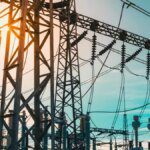Understanding Greenland’s Political Climate: The Independence Debate and Recent Developments
Introduction
In recent weeks, the political landscape surrounding Greenland has gained renewed attention, especially following remarks and actions by former U.S. President Donald Trump regarding the territory. On January 13, 2025, an article noted how Trump’s renewed interest in Greenland, and a controversial visit by his son, have reignited discussions on the territory’s independence and its relationship with both the United States and Denmark. This blog post aims to illuminate the complexities surrounding Greenland’s political status and the sentiments of its residents in the face of such developments.
Greenland: A Brief Political Overview
Greenland is an autonomous territory within the Kingdom of Denmark, with a unique political structure that allows for self-governance in many areas, including health, education, and natural resources. However, Denmark maintains control over foreign affairs and defense. This arrangement has helped Greenland establish its identity while still relying on Danish financial support. The historical context of colonialism and the quest for self-determination are deeply ingrained in the political consciousness of many Greenlanders.
The Independence Debate
Discussions of Greenland’s independence from Denmark have been a recurring theme, often spurred by external interests in the region’s resources and strategic location. In 2019, Trump famously expressed interest in purchasing Greenland, a suggestion that was met with swift backlash from both Greenlandic leaders and global observers. The proposition was seen not only as an oversight of Greenland’s autonomy but also as a continuation of colonial-minded attitudes.
The recent discussions initiated by Trump’s son during a visit to Greenland add another layer to this complex narrative. The purpose of the visit and the messages conveyed have been scrutinized, leading to an outpouring of opinions from Greenlanders. Many felt that the international attention brought by such visits serves as a reminder of their historical struggles for agency over their land and future.
Greenlanders’ Perspectives
Current sentiments in Greenland toward independence are mixed. For some, independence represents an opportunity to reclaim full autonomy and self-determination. However, there are concerns about the viability of a fully independent Greenland, given its economic reliance on Danish subsidies. Greenland’s economy is heavily influenced by fishing and mining industries, and while these resources are promising, there are worries about their sustainability and the potential impacts of climate change.
Local political discussions often reflect a tension between cultural pride and economic pragmatism. Politicians from various parties articulate different visions of Greenland’s future, with some advocating for increased self-governance within the realm of the Danish Kingdom, while others push for complete independence. These nuances are critical as Greenland navigates its path forward.
International Implications
Greenland’s geopolitical significance has drawn the attention of global powers, particularly in the context of climate change and resource extraction. The Arctic region is increasingly seen as a new frontier for natural resources, and countries like the U.S., Russia, and China are keenly interested in establishing a presence. As Greenland grapples with its future, external interests complicate the dynamics of independence.
U.S. foreign policy in relation to Greenland has fluctuated, and the implications of past leaders’ desires—like Trump’s—continue to resonate. International dialogue around Greenland’s status will likely evolve, particularly as climate issues bring about new challenges and opportunities.
Conclusion
As Greenland stands at a crossroads, the interplay between local desires for independence and external political maneuvers requires careful scrutiny. The recent discussions prompted by figures like Donald Trump and his family encapsulate the ongoing struggle for identity and self-governance that defines much of Greenland’s political discourse. Understanding these dynamics is essential not only for Greenlanders but also for policymakers and scholars interested in the evolving geopolitical landscape of the Arctic.
In light of these complexities, the broader global community must engage with Greenland’s aspirations with sensitivity and respect, recognizing the territory’s right to determine its own future free from historical burdens and colonial perspectives.










